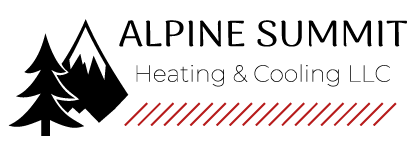
To avoid rising energy costs and work toward a more sustainable life, many homeowners are looking for ways to enjoy the same standards of comfort while reducing utility bills. As part of the Inflation Reduction Act, federal tax credits are available for upgrading to more efficient HVAC systems, such as air conditioners. These credits offer significant savings, as long as the homeowners choose qualifying equipment and submit the right paperwork.
If you’re trying to avoid a long process, maybe we can help! Alpine Summit Heating & Cooling hopes this guide will provide all the information necessary to take full advantage of HVAC tax credits this year. Here’s what you should know.
How Do These Tax Credits Work?
These valuable tax credits for upgrading your home to be more energy-efficient are just one goal of the recent Inflation Reduction Act. With the higher cost of energy making an impact, helping more homeowners upgrade their equipment is always beneficial. The primary goal of these credits is to help pay for high efficiency HVAC equipment and other projects. Of particular importance are the Residential Clean Energy Credit and the Energy Efficiency Home Improvement Credit.
But keep in mind, to be eligible for tax credits, you’ll need to fill out IRS Form 5695. Additionally, this form needs to be submitted during the same tax year the upgrades were installed, not purchased.
Maximizing Savings with the Energy Efficiency Home Improvement Credit
Through 2032, the Energy Efficiency Home Improvement credit empowers homeowners by offsetting up to $3,200 annually for making your home more energy-efficient. This can be up to 30% of the total project’s cost. You should be aware that in order to get back the maximum amount, you’ll have to make several investments. For example, you’ll get up to $2,000 for a new, high-efficiency heat pump. This can be combined with the remaining $1,200 in credits for other eligible upgrades made within the tax year.
While new heat pump systems are a key target for this incentive, high-efficiency furnaces, air conditioners, boilers, and other HVAC systems are still eligible for this tax credit. You should confirm that your choice’s energy efficiency rating is high enough for eligibility.
Exploring the Residential Clean Energy Credit
The Residential Clean Energy Credit provides 30% savings on a wide range of residential clean energy equipment upgrades. Eligibility only applies to homeowners looking for new clean energy solutions for their home. While the Home Improvement Credit highlights utilities and HVAC systems, this credit targets renewable energy sources like solar and wind energy.
Some specific items in this tax credit include the requirement that installation must occur between 2022 and 2032. But at the same time, homeowners can use any excess credit to reduce taxes in future years. This is a great way to spread out costs and keep them more manageable.
Additional Qualifications for Energy Tax Credits
Because HVAC systems are one of the biggest portions of your monthly energy costs, these tax credits incentivize the most energy-efficient options. But home energy efficiency can be improved in many other ways. Apart from the previously listed HVAC upgrades, {you could also choose|other eligible items include|you also have access to:
- Heat pump water heaters
- Modern electrical panel improvements
- Upgraded electrical wiring
- Insulation, air sealing and ventilation enhancements
- High-efficiency electric stoves, cooktops, ranges or ovens
- Heat pump clothes dryers
- High-efficiency water boilers
Like the HVAC systems, you’ll need to check that your preferred make and model features the required energy efficiency ratings.
Three Tips for Making the Most of 2024 HVAC Tax Credits
While all the listed upgrades can enhance your home's energy performance, some planning ahead will ensure they offer the most long-term benefits. Get the most from your HVAC tax credits with these reminders:
- Conduct a home energy audit to identify impactful upgrades. Trust experienced HVAC companies to pinpoint essential products and services.
- Enhance your home's envelope by addressing inefficient windows and doors.
- Explore potential rebates from utility companies for clean energy upgrades. Renewable sources like solar, wind, and geothermal contribute to community power grid sustainability.
- Remember to consider financing plans offered by service providers.
Alpine Summit Heating & Cooling Can Help You Secure HVAC Credits for 2024
Partner with local HVAC professionals like Alpine Summit Heating & Cooling for help with home energy audits and new installation projects. Our seasoned installers will deliver everything you need for home energy efficiency upgrades.




